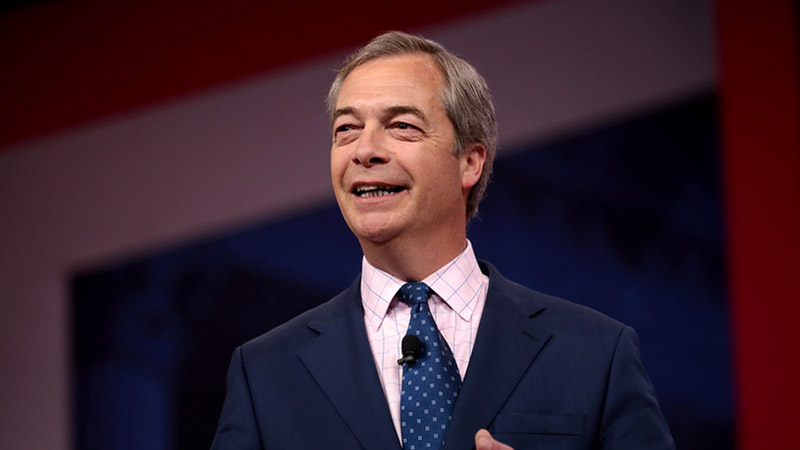Wide-ranging tax cuts, including slashing income tax, inheritance tax, and stamp duty formed a key part of the Reform Party’s manifesto, unveiled by leader Nigel Farage yesterday (17 June).
The party has also pledged to cut taxes for small business including through a corporation tax free allowance of £100k in profits.
Meanwhile, Reform has called for the Bank of England to cease interest payments to commercial banks on the £700bn bonds it holds as a result of quantitative easing (QE).
See also: Labour unveils manifesto targeting ‘wealth creation’ as top priority
“In a move that’s sure to stir the political pot, Reform UK has unveiled a suite of policies aimed squarely at the values of the Conservative right,” Rachael Griffin, tax and financial planning expert at Quilter said.
“By promising to raise the stakes in the tax and migration debate, the party is offering a feast of ‘red meat’ policies that are likely to energise right-wing supporters.
“The pledge to increase tax thresholds would be a welcome proposition for many, signalling a potential increase in take-home pay for hardworking people. However, the specifics of how that would be funded lacks detail, leaving voters to wonder about the financial feasibility of such promises.”
‘Shooting for the moon’
In contrast to the frugality of other party’s pledges so far this election, Reform has unveiled a raft of tax cuts in what Laura Suter, director of personal finance at AJ Bell, describes as ‘crowd-pleasing measures’.
“The Reform Party has come out with a huge £70bn tax giveaway for people’s personal taxes, covering a whole gamut of taxes from stamp duty to income tax to inheritance tax,” she said.
“While the other parties have been more frugal in their proposed tax breaks, Reform have gone all out with crowd-pleasing measures. But, of course, the cost for that has to come from elsewhere, with a cut to government spending, a slashing of the foreign aid bill and scrapping net zero all on the cards, among other things.
“If you’re a voter looking for a big income tax giveaway, then Reform is certainly planning to deliver it. The party has pledged to hike the tax-free personal allowance from the current £12,570 up to £20,000 – saving almost £1,500 a year in tax for anyone earning more than the new limit. On top of that, higher-rate taxpayers would see that threshold increased from the current £50,270 up to £70,000 – which on its own would save the highest earners £4,000 a year in tax.”
See also: Conservatives pledge to deliver further cuts to National Insurance
As with many tweaks to the tax system, however, while the policies would lift lots of people out of having to pay income tax, it also means that those on higher-than-average salaries pay much less in tax too, says Quilter’s Griffin.
“There are lots of reasons why a lower tax environment can stimulate economic growth but measures like these can take time to feed through and on the face of it these kinds of pledges can look like a giveaway to the wealthier. Given the current economic environment, the optics of handing someone with a salary of £75,000 a nearly £5,500 per year saving while those on the average salary only save £1,486 might be difficult for many to stomach.
“These kinds of tax giveaways are not easy to fund and such a radical shake up would cost the government billions at a time when the public purse strings are stretched. As is often the case manifesto pledges among the smaller political parties are designed to ignite public debate rather than have a chance of being realistically implemented.
“As the battle lines are drawn, it is clear that Reform UK is not just chipping away at the status quo — it is shooting for the moon. Whether these tax pledges will prove to put pressure on the Tory and Labour policies remains to be seen, but they’re certainly poised to shake up the conversation on Britain’s fiscal future.”
See also: Investment trusts set year-record for mergers by June











